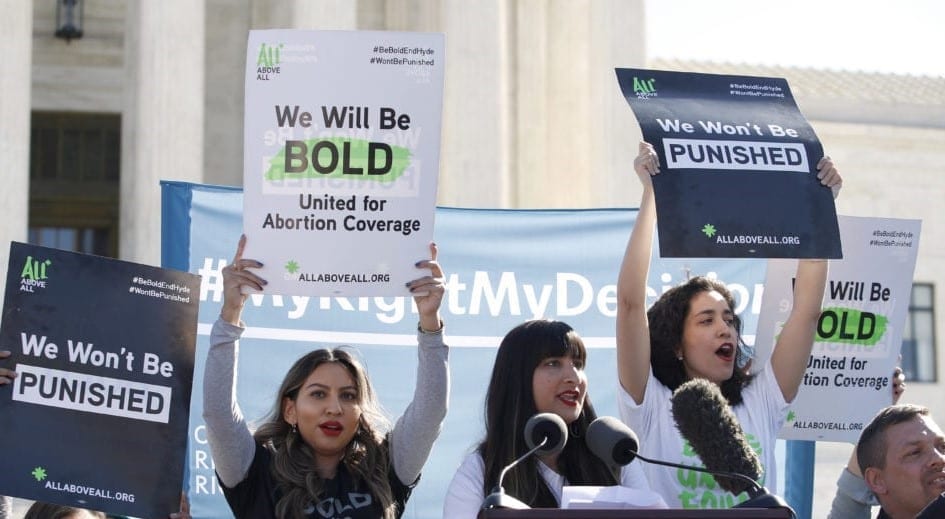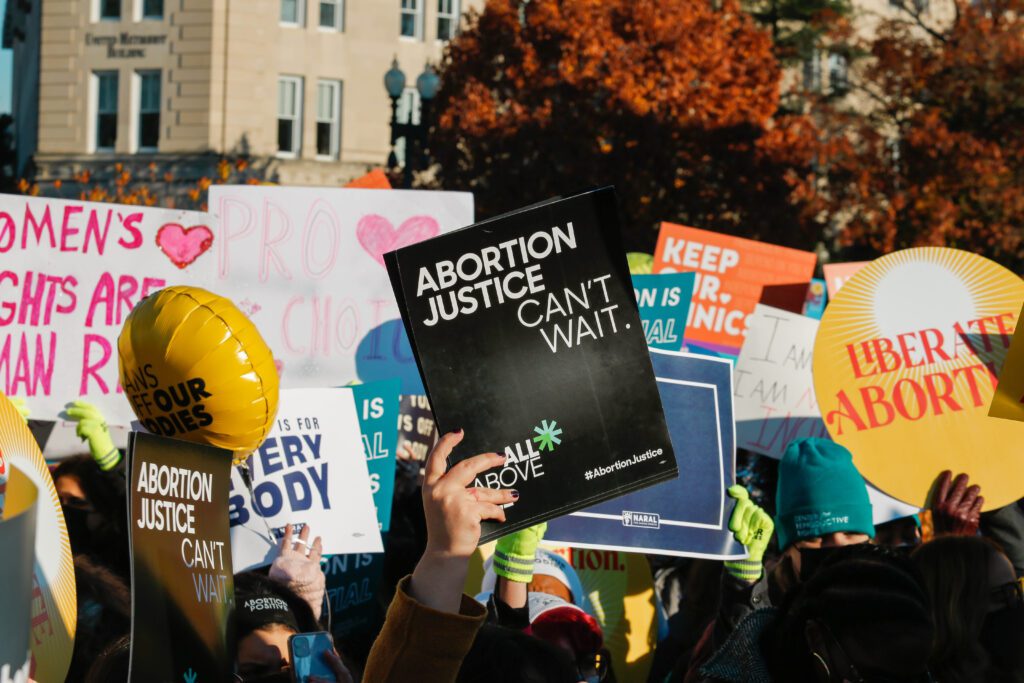EACH Act Would Remove Major Economic Barriers to Abortion Access in the U.S.
Center applauds introduction of federal legislation to reverse harmful Hyde Amendment and expand insurance coverage for abortion care

Members of the U.S. House of Representatives and Senate introduced the Equal Access to Abortion Coverage in Health Insurance (EACH) Act, a federal bill to ensure that every person who receives health care or insurance through the federal government would have coverage for abortion care.
The EACH Act would reverse the Hyde Amendment and related abortion coverage bans that push abortion care out of reach for people enrolled in federal health insurance programs like Medicaid and TRICARE or who receive health care through a government provider like the Indian Health Service and the Veterans Administration.
These bans deny abortion coverage for federal employees and their dependents, military service members, veterans, Native Americans and Indigenous people, Peace Corps volunteers, immigrants, people in federal prisons, and residents of Washington, D.C.
The Center for Reproductive Rights is part of a broad coalition, led by All* Above All, of more than 100 state, national, and regional organizations supporting the EACH Act. Through its U.S. congressional advocacy work, the Center advocates for federal laws that advance reproductive health, rights, and access, including the EACH Act.
“By denying insurance coverage for abortion, the Hyde Amendment and other coverage bans put abortion care out of reach for those working to make ends meet,” said Freya Riedlin, Federal Policy Counsel for the Center for Reproductive Rights. “We fully support the EACH Act, which will ensure that every person can make their own decisions about pregnancy, no matter how they get their insurance, where they live, or how much money they earn.”
Abortion coverage bans have long-lasting, harmful impacts
Studies show that restricting Medicaid coverage of abortion care forces one in four women with low incomes to carry an unwanted pregnancy to term—an outcome that can have long-lasting impacts for women’s health, well-being, and financial security. Studies also show that women who are unable to access wanted abortion care are at increased risk of experiencing intimate partner violence and health problems and are more likely to fall into poverty and to experience ongoing financial distress, including rising debt and eviction proceedings.
Abortion coverage bans compound the barriers to care many people already face due to systemic discrimination and economic insecurity. Black, Indigenous and people of color (BIPOC) are among those most harmed by abortion restrictions while also bearing the brunt of the pandemic and systemic racism. Because of the systemic barriers they face, BIPOC, people working to make ends meet, members of the LGBTQ+ community, and young people are more likely to qualify for Medicaid and other government insurance programs and are therefore also more likely to experience the financial hardships caused by the Hyde Amendment.
In addition to reversing the Hyde amendment, the EACH Act would also prevent the federal government from prohibiting or restricting coverage of abortion care by private health insurance companies, including those participating in the insurance marketplaces under the Affordable Care Act.
The EACH Act of 2021 was introduced in the House of Representatives by Congresswomen Barbara Lee (D-CA), Ayanna Pressley (D-MA), Diana DeGette (D-CO), and Jan Schakowsky (D-IL), and by Senators Tammy Duckworth (D-IL), Patty Murray (D-WA), and Mazie Hirono (D-HI) in the Senate. In the previous Congress, the EACH Act was introduced as the EACH Woman Act with now Vice President Kamala Harris as an original Senate sponsor.
Lifting abortion coverage bans is an essential step toward equity in abortion access.
Congress first passed the Hyde Amendment in 1976 as a rider on the annual Department of Health and Human Services funding bill with the aim of prohibiting abortion care coverage under Medicaid. Lawmakers have renewed it every year since, and expanded its reach to ban abortion coverage for nearly all people who receive health insurance through the federal government. This has made abortion care inaccessible for people struggling financially for nearly 45 years.
In addition to the Hyde Amendment, many people seeking abortion care are also subject to state-based restrictions that prohibit coverage of abortion care: 26 states prohibit coverage in health insurance marketplaces and 12 prohibit coverage in private health insurance plans. More than half (55%) of women of reproductive age enrolled in Medicaid live in states that block insurance coverage for abortion except in limited circumstances.
In the majority of states, the out-of-pocket cost for abortion care is considered financially catastrophic for households earning the state’s median monthly income. Without insurance coverage, people seeking care must often forgo basic expenses, such as rent, to access care; borrow money from friends and family; delay care; or forego care entirely and carry the pregnancy to term.
Medicaid plays an essential role in providing health care coverage for people who experience elevated rates of poverty, under- and unemployment, and gaps in private insurance coverage. By dismantling economic barriers to accessing abortion care, passage of the EACH Act would be a critical step toward equity in health care access—and making sure every person can make health care decisions about pregnancy that are best for themselves and their families.
Learn more:



